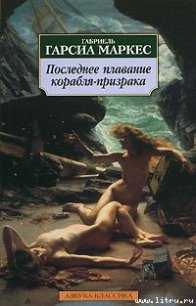The Star of Lancaster - Plaidy Jean (бесплатные онлайн книги читаем полные TXT) 📗
But all the same he had gone away to war.
And now here she lay ... in Windsor. He would not stay with her while her child was born. Very well, she would deliberately disobey him.
He would not be angry; once the child was born he would forget its birthplace.
It was a magnificent castle; fitted to be the birthplace of Kings. She wanted a boy—a King to follow Henry. It was what they both wanted. And why should it not be born in Windsor?
Henry's favourite ancestor, Edward the Third, had been born here. They had called him Edward of Windsor, and if she had a son she w^ould call him after his father. He should be Henry of Windsor.
And so she was brought to bed and in due course her son was born.
She called him Henry after his father.
*A plague on their prophecies, my son,' she said. *My little Henry the Sixth, you are going to be another such as your father.'
When the news was brought to Henry he was filled with delight. A son! Was that not what every King desired? He had his fair and passionate Katherine and how like her to add to her perfections by giving him a son!
*The Queen insists on calling him Henry,' he was told.
*That does not displease me,' he said with a smile. 'Long live our young Henry the Sixth.'
*And may he not come to the throne for many a long year, my lord.'
The King was silent suddenly. He said: 'Where was he born?'
They hesitated to tell him knowing his uneasy feelings.
When he would have it from them he turned white—not with anger but with fear.
Then he said slowly as though someone else was speaking through him:
'Henry born at Monmouth
Shall small time reign and much get
But Henry of Windsor shall long reign and lose all.'
He looked with astonishment at those who surrounded him. And then he added: 'But as God will, so be it.'
*My lord/ said his brother Gloucester. 'Are you well?'
Henry put his hand to his brow. *A strangeness came over me,' he said. *It was the news that the boy had been born at Windsor. I asked the Queen not to lie-in there.'
'Windsor, my lord? It is a right fitting place for the birth of a Prince.'
Henry clapped his brother on the shoulder. 'You are right, brother. What matters it? A fine boy, eh. And a Henry.'
Six months after the birth, Katherine prevailed on Henry to allow her to join him. The baby was left in the care of his nurses and she set out, accompanied by the Duke of Bedford and an army of twenty thousand.
Thus as a queen should she travelled across France sending messengers on in advance to tell her husband of her coming.
When Henry heard that she had arrived in France he was filled with mingling joy and dismay. For some months he had been feeling ill and he could not forget how rapidly his father had been attacked by disease.
His was not an illness of disfiguration. He was suffering from the dysentery which he had seen ruin so many of his soldiers. It left him limp and exhausted. He was advised to rest but he would not do so, assuring himself that he would throw off the indisposition which he refused to believe was anything but temporary.
He sent to the Queen to tell her of her daughter's arrival and as the King was enjoying one of his lucid periods the two of them joined Henry and rode with him to meet their daughter.
Katherine was shocked to see the change in Henry and declared that it was time she came to him for it was clear that he needed looking after. He smiled wanly, and declared that he had far too much to do to become an invalid.
They travelled on to Senlis and there Katherine insisted that he rest.
'Nay,' he answered, 'I cannot rest. Nor can I dally with you, sweetheart. Your brother, who calls himself the Dauphin, is about to battle with my ally the Duke of Burgundy. I know Burgundy expects and needs my help.'
'Forget it for a while,' pleaded Katherine. 'The doctors say you need to rest.'
He smiled at her. 'You are a temptress, my dear Queen, but I am not to be lured from my duty/
'When do you leave Senlis?*
*At dawn,' he said. 'Come, let us retire now. The night is too short.'
So they retired but during the night he became very ill and she knew that he could not travel at dawn. He fought off the lassitude which overtook him and called for his armour.
Although he could scarcely stand he was dressed and ready to ride out, and set out at the head of his men for Melun, while the Queen went back to Rouen.
But as he neared Melun it was borne home even to him that he could go no further. It was no use pretending that nothing was wrong.
They prepared a litter for him and he was taken back to Senlis.
Henry knew that there was little time left to him. He believed he had displeased God in some way for he was only thirty-five years old. It was young to die and his work not completed. He had come farther than any English King before him. He had been himself a greater warrior even than Edward the First and Edward the Third. His people loved him; the crown of France was almost in his grasp and now he was to die.
His conscience smote him. He had caused his father great anxiety. In his youth he had lived without thought of anything but his own pleasure. John Oldcastle had expiated his past follies; he had died a martyr. But he, the King, what had he done? He had all but won France but for some divine reason he was not going to be allowed to complete the task.
He wanted to ask forgiveness of all those he had wronged. He wanted to know where he had failed.
He remembered his stepmother suddenly. Joanna who had been accused of witchcraft—not because there was any evidence against her but because he needed her money to help prosecute the war.
He must make amends. He must do it at once while there was time left to him.
All must be restored to her.
He sent for his scribe. He must write as dictated. All must
be restored to Queen Joanna and she must be released from captivity. He knew that she had been wrongfully accused.
'Let that be done without delay,' he commanded.
He felt better after that.
He sent for his doctors. 'Tell me, am I dying?' he asked.
'There is always hope, my lord,' they answered.
*I want the truth,' he answered. 'Do not think to spare me. I want to know how much time is left to me.'
'Sire,' was the answer, 'you must think of your soul for unless it is the will of God to decree otherwise you cannot live for more than two hours.'
Two hours, he mused. Only two hours left to me. What of my son ... a baby still? 'Send my brother. Send my uncle Exeter.'
They came and stood by his bedside.
'John,' he said, 'you have been a good brother to me. Be as good a friend to my son as you have been to me.'
'I will,' said Bedford.
'And my good Uncle of Exeter. You must be Regent of England and guardian to my son. As you love me care for him.'
'You may trust me,' said Exeter.
'Is that Warwick I see there? Our good cousin, be the governor of my son. Teach him what he should learn. Do this in memory of me, I beg of you.'
Warwick fell on his knees. 'My dear lord,' he said, 'if this must be then I will serve him as I served you.'
'I have good friends,' said the King. 'John,' he went on, 'you must comfort my Queen. She is young; she is the most afflicted creature living. Care for her.'
'I swear I shall do as you would have me,* said Bedford.
'Then there is no more for me to do but to die in peace.'
And so he died.
Katherine was stricken with grief. She was twenty-one years old and looked younger in her melancholy.
The King's body was placed on a chariot drawn by four horses and with a cavalcade of mourners was taken to Abbeville. It was an impressive procession for round the chariot rode four hundred men at arms in black armour, their horses covered in black velvet and their lances held with the points




